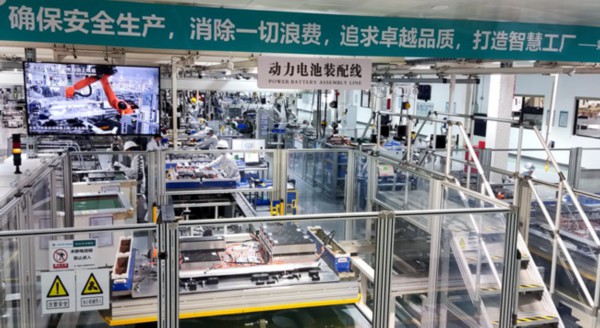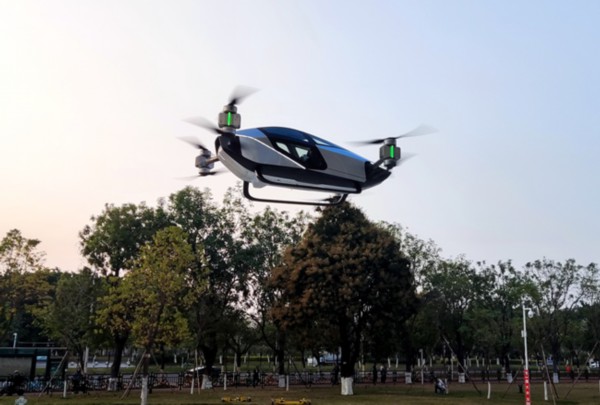The automobile output in Guangzhou, capital of south China’s Guangdong Province, is expected to exceed 3.1 million units in 2022, ranking first among Chinese cities for four consecutive years, amid the impact of the sporadic COVID-19 resurgence, shortage in semiconductor chips and rise in raw material prices, according to data released by the Guangzhuang Municipal Industry and Information Technology Bureau.

Photo shows the power battery assembly line of GAC Aion, owned by GAC Group, in Guangzhou, capital of south China’s Guangdong Province. (People’s Daily Online/Sun Boyang)
The automobile industry has become the largest sector in Guangzhou. Between January and November 2022, the automobile output in the city increased 12.5 percent year on year to nearly 2.93 million units, of which production of new energy vehicles (NEVs) surged by 120.8 percent compared to the same period of the previous year.
In 2022, Guangzhou issued several new policies to promote the development of its automobile sector by providing support in terms of land, capital, energy utilization, and other aspects.
The city pushed ahead with 314 projects in the automobile industrial chain in 2022, including 106 projects that were expected to be signed with a total estimated investment of more than 110 billion yuan ($16.03 billion) in fields such as automobile research and development, designing, materials, equipment, and charging and battery swap facilities.

A flying car developed by XPeng Aeroht, the flying car unit of Chinese electric car start-up Xpeng Motors, on a test flight. (People’s Daily Online/Sun Boyang)
A number of new NEV projects, including the second smart manufacturing center of GAC Aion, owned by GAC Group, and the smart manufacturing base of Chinese electric car start-up Xpeng Motors, were put into operation in Guangzhou in 2022, helping the city reach an annual production capacity of more than 1 million NEVs.
Feng Xingya, general manager of GAC Group, said the group has engaged in the automobile industrial chain in batteries, software development, operating system, and chips. The group has over 2,000 first-tier suppliers.
With more than 40 projects related to GAC Aion, including spare parts, Panyu district in Guangzhou has established an industrial chain in the internet-connected NEV sector, achieving an industrial agglomeration effect.
XPeng Aeroht, Xpeng’s flying car unit based in Panyu district, is also a beneficiary of that effect.
Qiu Mingquan, general manager of the brand marketing department of Xpeng Aeroht, said the R&D of flying cars relies more on the industrial chains of the smart automobile industry and aviation sector. Guangzhou, a city in the Guangdong-Hong Kong-Macao Greater Bay Area, enjoys incomparable geographical advantages. In addition, a cluster of internet innovations in the city facilitates enterprises’ development.








 公安备案号:32010202010067
公安备案号:32010202010067